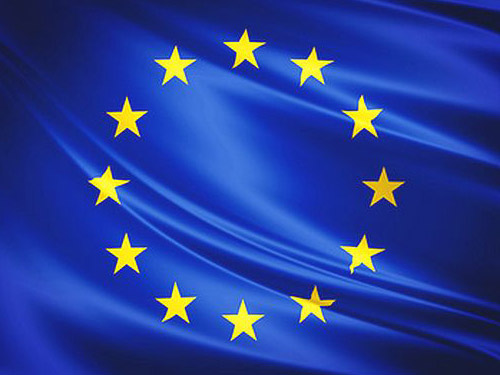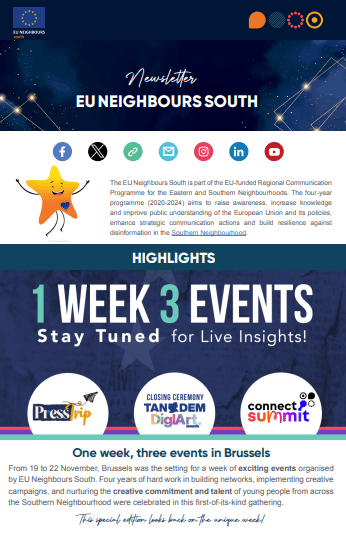The European Commission is seeking proposals to support civil society actors in the two following themes: 1. Using the potential of information and communication technology to positively change the dynamic of conflict/crisis resolution and support peacebuilding initiatives, 2. Raising awareness about and fight disinformation/information influence and strengthen media literacy for key users in Turkey, the Middle-East and North Africa, with financial assistance from the Instrument Contributing to Stability and Peace.
The global objective of this call for proposals is to promote peace in the digital space and enhance resilience of conflict-affected and fragile societies to media harmful content in Algeria, Iraq, Jordan, Lebanon, Libya, Morocco, Syria, Tunisia, Turkey, West Bank and Gaza Strip and Yemen.
The specific objectives of this call for proposals are:
- To use the potential of ICT (digital media, digital applications, mobile phones, data, etc.) to positively change the dynamic of conflict/crisis resolution and support peacebuilding initiatives;
- To raise awareness about and fight disinformation/information influence and strengthen media literacy for key users (youth, influencers, journalists, citizens, etc.
The priorities of this call for proposals are:
- Promoting free open source software, digital tools and platforms to monitor, counter the spread and mitigate the impact of hate speech, rumours and disinformation.
- Promoting creative media content as a tool for outreach to reinforce shared identities, support social cohesion, mediation and post-conflict reconciliation efforts.
- Promoting informative and educational programme contributing to increase knowledge of complex issues and help the audience critically think about it.
- Supporting the implementation of digital mediation and diplomacy initiatives in conflict-affected areas.
- Contribute to empower and strengthen the voice of marginalised groups through the use of media and ICT.
- Foster innovation and policy development between ICT, peace and security.
Integrated approaches that combine multiple media platforms (radio, print, television and online media) with offline engagement, when necessary, are authorised. All proposals will have to demonstrate that they are compliant with the regulations of the country where the action takes place and with the EU General Data Protection Regulation[1].
Each application has to address the following methodological elements:
- Clearly demonstrated knowledge of the local context and identified priority: the applicant must show a sound understanding of local context and targeted audience. Organisations have to show that they can rely on an existing network of contacts and that they can deploy in the targeted country.
- Conflict sensitivity and do-no-harm: the approach followed in developing the design of the proposals is expected to be conflict-sensitive, right-based, inclusive and participatory. Particular attention shall be given to the risks associated with digital activity.
- Innovation and use of transformative technologies: priority will be given to applications using the potential of data-driven information and technology to achieve peacebuilding objectives. This includes databases, smartphone applications, messaging services, video games, virtual reality headset and all manners of Geographic Information System. Public-private partnerships shall be sought when relevant and necessary. Applications funded by this project must be released under the European Union Public License[2].
- Capacity-building component, transfer of know-how and sustainability: priority will be given to actions reinforcing the capacities of local civil society actors and including a potential of replicability and transferability of skills. Notably, actions enabling local civil society organisations to engage with and/or use media in their peacebuilding work and to act as agent of positive change, or to strengthen the role of youth and women in crisis prevention and peacebuilding via media-related interventions.
- Synergies with other EU or non-EU programmes are highly recommended. Multi-level coordination and cooperation between relevant stakeholders involved is fundamental for effective and efficient delivery of results.
- Cross-cutting issues: in accordance with Article 2(4) of the IcSP Regulation, whenever possible, the following cross-cutting issues shall be reflected in the design of the proposals: the promotion of human rights and humanitarian law; non-discrimination of vulnerable groups; the promotion of gender equality and women empowerment and combatting gender-based violence; the prevention of climate change; the promotion of democracy and good governance. The selected initiatives should contribute to create, restore or consolidate appropriate tools and mechanisms at local, national and regional level to prevent conflicts and contribute to durable peace.
[1]https://gdpr.eu
[2]https://joinup.ec.europa.eu/sites/default/files/eupl_v1.2_en.pdf /


 Syria *
Syria *

